21 start with P start with P
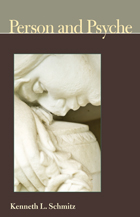
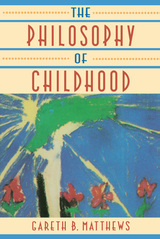
So many questions, such an imagination, endless speculation: the child seems to be a natural philosopher--until the ripe old age of eight or nine, when the spirit of inquiry mysteriously fades. What happened? Was it something we did--or didn't do? Was the child truly the philosophical being he once seemed? Gareth Matthews takes up these concerns in The Philosophy of Childhood, a searching account of children's philosophical potential and of childhood as an area of philosophical inquiry. Seeking a philosophy that represents the range and depth of children's inquisitive minds, Matthews explores both how children think and how we, as adults, think about them.
Adult preconceptions about the mental life of children tend to discourage a child's philosophical bent, Matthews suggests, and he probes the sources of these limiting assumptions: restrictive notions of maturation and conceptual development; possible lapses in episodic memory; the experience of identity and growth as "successive selves," which separate us from our own childhoods. By exposing the underpinnings of our adult views of childhood, Matthews, a philosopher and longtime advocate of children's rights, clears the way for recognizing the philosophy of childhood as a legitimate field of inquiry. He then conducts us through various influential models for understanding what it is to be a child, from the theory that individual development recapitulates the development of the human species to accounts of moral and cognitive development, including Piaget's revolutionary model.
The metaphysics of playdough, the authenticity of children's art, the effects of divorce and intimations of mortality on a child--all have a place in Matthews's rich discussion of the philosophical nature of childhood. His book will prompt us to reconsider the distinctions we make about development and the competencies of mind, and what we lose by denying childhood its full philosophical breadth.
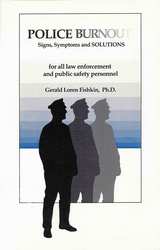
Police Burnout is the synthesis of Dr. Fishkin’s sixteen years experience as a police psychologist, and is a must read for all police officers, family members, police and public safety administrators, as well as mental health specialists who work in the area of law enforcement. It is a modern classic in the field of police psychology.

Psychology is the dogma of our age; psychotherapy is our means of self-understanding; and "repressed memory" is now a universally familiar form of trauma. Jeffrey Prager, who is both a sociologist and a psychoanalyst, explores the degree to which we manifest the clichés of our culture in our most private recollections.
At the core of Presenting the Past is the dramatic and troubling case of a woman who during the course of her analysis began to recall scenes of her own childhood sexual abuse. Later the patient came to believe that the trauma she remembered as a physical violation might have been an emotional violation and that she had composed a memory out of present and past relationships. But what was accurate and true? And what evidence could be persuasive and valuable? Could the analyst trust either her convictions or his own? Using this case and others, Prager explores the nature of memory and its relation to the interpersonal, therapeutic, and cultural worlds in which remembering occurs.
Synthesizing research from social science, psychoanalysis, neuroscience, and cognitive psychology, Prager uses clinical examples to argue more generally that our memories are never simple records of events, but constantly evolving constructions, affected by contemporary culture as well as by our own private lives. He demonstrates the need that sociology has for the insights of psychoanalysis, and the need that psychoanalysis has for the insights of sociology.
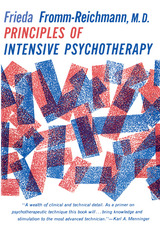
"One is continuously aware that here is a truly human being at work, human in the sense of exquisite awareness, on a profoundly intuitive level, of the workings of the human totality. . . . Because of this she can bridge the vast divide that separates us from the psychotic . . . thereby gaining access to the process of recalling the patient to his lost domain."—Louise E. DeRosis, M.D., American Journal of Psychoanalysis

Every night we enter a mythic realm, a dark, primordial world of fear and desire. What this world offers, Anthony Stevens suggests, may well be the key to understanding our waking mysteries--ourselves, our society, and our history. A prominent psychiatrist and practicing Jungian analyst, Stevens views dreaming from both psychological and neurological perspectives to show how dreams owe their origins as much to our evolutionary history as a species as to our personal history as individuals.
A work rich in symbolic and scientific insight, Private Myths traverses the course of dream interpretation from distant hunter-gatherer times to the present. This analysis is as authoritative as it is wide-ranging, including discussions of the biology of dreaming and the discovery of REM sleep, elaboration of the latest neuroscientific techniques in sleep research, and an assessment of the century-long legacy of analytic practice to dream interpretation. In a close look at the actual processes of dream formation, Stevens relates "dream work" to other creative capacities such as language, poetry, storytelling, memory, play, symptom-formation, magic, and ritual. He draws on his many years of experience to analyze key historical dreams, such as Freud's dream of Irma's injection and Hitler's dream of being buried alive, and enriches this discussion with analyses of his own and his patients' dreams.
Remarkable in its breadth, Private Myths makes the principles of dream interpretation accessible to scientists, the findings of dream science accessible to analysts, and the discoveries of both available to anyone intrigued by the mysteries of dreams and dreaming.

In The Private Self, Arnold Modell contributes an interdisciplinary perspective in formulating a theory of the private self. A leading thinker in American psychoanalysis, Modell here studies selfhood by examining variations on the theme of the self in Freud and in the work of object relations theorists, self psychologists, and neuroscientists. Modell contends that the self is fundamentally paradoxical, in that it is at once dependent upon social affirmation and autonomous in generating itself from within. We create ourselves, he suggests, by selecting values that are endowed with private meanings.
By thinking of the unconscious as a neurophysiological process, and the self as the subject and object of its own experience, Modell is able to explain how identity can persist in the flux of consciousness. He thus offers an exciting and original perspective for our understanding of the mind and the brain.
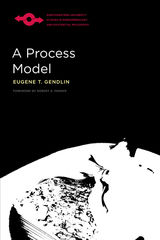
A Process Model, Gendlin’s magnum opus, offers no less than a new alternative to the dualism of mind and body. Beginning with living process, the body’s simultaneous interaction and identity with its environment, Gendlin systematically derives nonreductive concepts that offer novel and rigorous ways to think from within lived precision. In this way terms such as body, environment, time, space, behavior, language, culture, situation, and more can be understood with both great force and great subtlety.
Gendlin’s project is relevant to discussions not only in philosophy but in other fields in which life process is central—including biology, environmental management, environmental humanities, and ecopsychology. It provides a genuinely new philosophical approach to complex societal challenges and environmental issues.
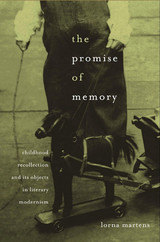
Readers once believed in Proust’s madeleine and in Wordsworth’s recollections of his boyhood—but that was before literary culture began to defer to Freud’s questioning of adult memories of childhood. In this first sustained look at childhood memories as depicted in literature, Lorna Martens reveals how much we may have lost by turning our attention the other way. Her work opens a new perspective on early recollection—how it works, why it is valuable, and how shifts in our understanding are reflected in both scientific and literary writings.
Science plays an important role in The Promise of Memory, which is squarely situated at the intersection of literature and psychology. Psychologists have made important discoveries about when childhood memories most often form, and what form they most often take. These findings resonate throughout the literary works of the three writers who are the focus of Martens’ book. Proust and Rilke, writing in the modernist period before Freudian theory penetrated literary culture, offer original answers to questions such as “Why do writers consider it important to remember childhood? What kinds of things do they remember? What do their memories tell us?” In Walter Benjamin, Martens finds a writer willing to grapple with Freud, and one whose writings on childhood capture that struggle.
For all three authors, places and things figure prominently in the workings of memory. Connections between memory and materiality suggest new ways of understanding not just childhood recollection but also the artistic inclination, which draws on a childlike way of seeing: object-focused, imaginative, and emotionally intense.

Unveils the psychoanalytic undercurrents of contemporary Islam
Fethi Benslama is a psychoanalyst who, although a secular thinker, identifies himself as a person of Muslim culture who rejects ready-made explanations for Islamic fundamentalism. In that spirit, Benslama demythifies both Islam and Western ideas of the religion by addressing the psychoanalytic root causes of the Muslim world’s clash with modernity and subsequent turn to fundamentalism.
Tracing this ideological strain to its origins, Benslama shows that contemporary Islam consists of a fairly recent hybridization of Arab nationalism, theocracy, and an attempt (both naïve and deadly) to ground science in faith. Combining textual analysis and Lacanian and Freudian psychoanalysis, he examines Islam’s foundation, providing fresh readings of the book of Genesis, the Koran, The Arabian Nights, and the work of medieval Islamic philosophers.Refreshingly, Benslama writes without ideological bias and undoes the simplistic, Western view of Islam while refusing to romanticize terrorism or Muslim extremism. This is a penetrating work that reveals an alternate history of the Islamic religion and opens new possibilities for its future development.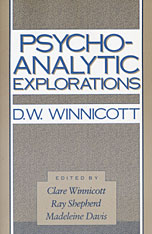


The book follows major themes, highlighting the similarities and differences among influential thinkers and schools of thought. At the same time, Psychoanalytic Theory is structured so that the chapters can be read in any order. Each one includes an introductory overview and summary, as well as biographical and historical material for each theorist discussed. This book is an essential starting point for any exploration of the contribution of psychoanalysis to contemporary theory.

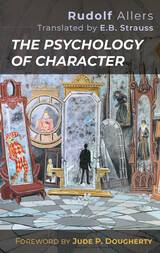

Contributors. Elizabeth Jane Bellamy, Teresa Brennan, Rosaria Champagne, Stathis Gourgouris, Catherine Liu, Kathleen McHugh, Robert Miklitsch, Abdul-Karim Mustapha, Laurence A. Rickels, Eugene Victor Wolfenstein, Slavoj Zizek

Morton Prince, a debonair Boston neurologist, established the modern American tradition of psychopathology and psychotherapy in the closing decade of the nineteenth century. Born in 1854, two years before Sigmund Freud and five years before Pierre Janet, he criticized and adapted their work to his own particular interests, which were primarily the exploration of hypnosis, multiple personality, and the unconscious. Prince informally headed the most sophisticated group of psychopathologists in the English-speaking world, which flourished in Boston and Cambridge beginning around 1890. He founded the Journal of Abnormal Psychology in 1906 and the American Psychopathological Association in 1910.
The essays in this volume have been chosen by Nathan G. Hale, Jr., to illustrate four major stages in Prince’s career. The first, from 1885 to 1898, saw his development of a dynamic psychotherapy, based on the existence of unconscious mental processes. During the second period, from 1898 through 1911, he made intensive studies of multiple personality. In the third, from 1909 through 1924, he confronted psychoanalysis and behaviorism. During the last period, from about 1914 through 1927, he published his final views of the unconscious, hypnotism, and personality.
Morton Prince’s observations remain important partly because they are so richly detailed, partly because of their dramatic and human interest, but chiefly because they shed light on phenomena that still defy final explanation.
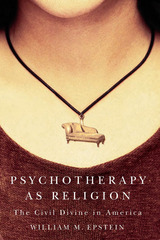
A provocative look at America on the couch.In Psychotherapy as Religion, William Epstein sets out to debunk claims that psychotherapy provides successful clinical treatment for a wide range of personal and social problems. He argues that the practice is not a science at all but rather the civil religion of America, reflecting the principles of radical self-invention and self-reliance deeply embedded in the psyche of the nation. Epstein begins by analyzing a number of clinical studies conducted over the past two decades that purport to establish the effectiveness of psychotherapeutic treatments. He finds that each study violates in some way the standard criteria of scientific credibility and that the field has completely failed to establish objective procedures and measurements to assess clinical outcomes. Epstein exposes psychotherapy’s deep roots in the religious and intellectual movements of the early nineteenth century by demonstrating striking parallels between various types of therapy and such popular practices as Christian Science and spiritualism. Psychotherapy has taken root in our culture because it so effectively reflects our national faith in individual responsibility for social and personal problems. It thrives as the foundation of American social welfare policy, blaming deviance and misery on deficiencies of character rather than on the imperfections of society and ignoring the influence of unequal and deficient social conditions while requiring miscreants to undergo the moral reeducation that psychotherapy represents. This is a provocative, brilliantly argued look at America on the couch. Psychotherapy as Religion is essential reading for anyone interested in the history and current state of mental health.

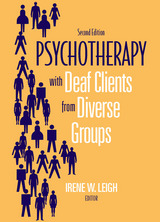
The second edition of Psychotherapy with Deaf Clients from Diverse Groups features the introduction of six new chapters that complement full revisions of original chapters with advances in the field since its initial publication. The first part begins with a new chapter on the current ethical issues relevant to working with deaf clients. In subsequent chapters it provides updated information on the diversity of consumer knowledge, attitudes, beliefs, and experiences. Deaf therapists and their involvement in the Deaf community also are scrutinized in this context.
The revised second part examines psychotherapy for various constituencies, including deaf women; lesbian, gay, and bisexual deaf populations; children of deaf parents; and people with Usher syndrome. Part Three chapters consider interventions with African American deaf clients, American Indians who are deaf, and Asians who are American and deaf. A new chapter expands information on therapy for Latino deaf clients.
The final section incorporates three new chapters on other deaf populations — deaf college students, recipients of cochlear implants, and deaf elderly clients. Also, new information has been added to chapters on the treatment of deaf survivors of sexual abuse and deaf clients with chemical dependency. The last addition to the second edition outlines dialectical behavior therapy for deaf clients, a valuable option for clinicians.
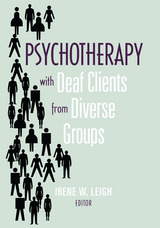
The second edition of Psychotherapy with Deaf Clients from Diverse Groups features the introduction of six new chapters that complement full revisions of original chapters with advances in the field since its initial publication. The first part begins with a new chapter on the current ethical issues relevant to working with deaf clients. In subsequent chapters it provides updated information on the diversity of consumer knowledge, attitudes, beliefs, and experiences. Deaf therapists and their involvement in the Deaf community also are scrutinized in this context.
The revised second part examines psychotherapy for various constituencies, including deaf women; lesbian, gay, and bisexual deaf populations; children of deaf parents; and people with Usher syndrome. Part Three chapters consider interventions with African American deaf clients, American Indians who are deaf, and Asians who are American and deaf. A new chapter expands information on therapy for Latino deaf clients.
The final section incorporates three new chapters on other deaf populations — deaf college students, recipients of cochlear implants, and deaf elderly clients. Also, new information has been added to chapters on the treatment of deaf survivors of sexual abuse and deaf clients with chemical dependency. The last addition to the second edition outlines dialectical behavior therapy for deaf clients, a valuable option for clinicians.
READERS
Browse our collection.
PUBLISHERS
See BiblioVault's publisher services.
STUDENT SERVICES
Files for college accessibility offices.
UChicago Accessibility Resources
home | accessibility | search | about | contact us
BiblioVault ® 2001 - 2024
The University of Chicago Press









